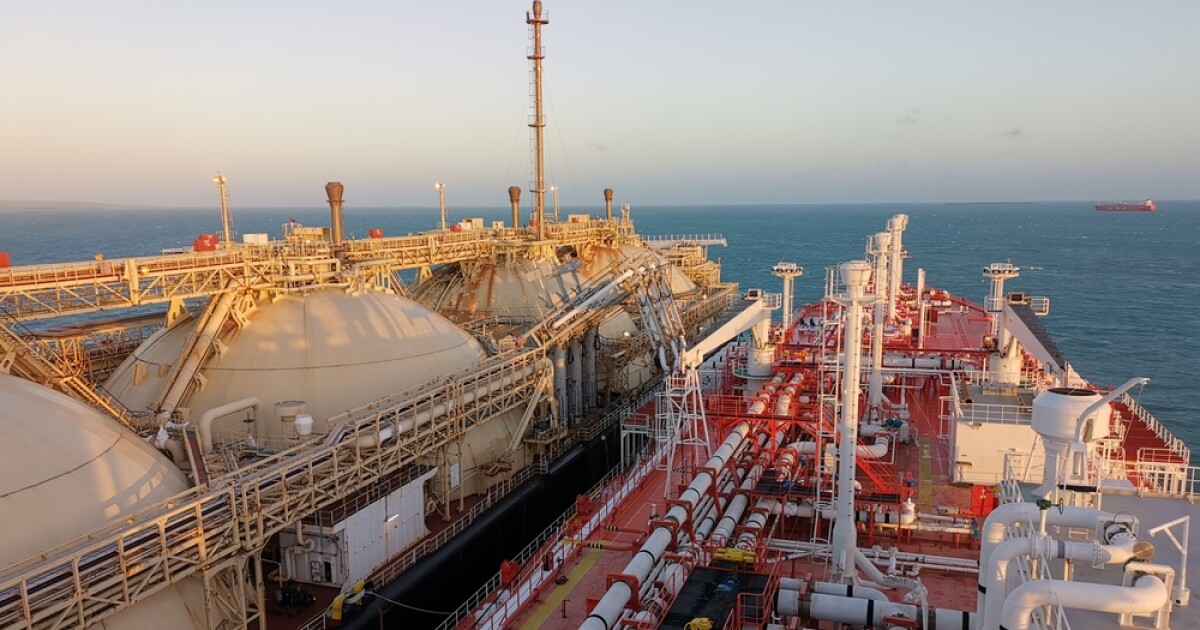Qatar this week threatened to stop exporting LNG to Europe over environmental and human rights concerns, while a new US-EU framework trade deal has Europe committed to buying more American energy.
But it’s unclear how much US LNG exporters stand to benefit from these two high-stakes diplomatic initiatives, analysts and industry sources told Energy Intelligence, given that American LNG is already flowing to Europe at a record pace, spare export capacity on the US Gulf Coast is limited, and the EU’s environmental regulations may serve as a deterrent.
So far in 2025, Europe is dominating the purchase of US LNG cargoes, driven by various demand drivers — including Europe’s need to replenish storage inventories without the help of Russian gas piped through Ukraine, and shipping constraints at the world’s two primary waterways.
‘Unworkable in the Real World’
In theory, the trade agreement would increase US LNG flows to Europe over time — but only if they don’t run afoul of the EU’s Corporate Sustainability Due Diligence Directive (CS3D) covering environmental and human rights obligations on the continent.
“Given the most recent US-EU trade deal, I don’t see much room for increasing the environmental requirements on US imports if Europe is going to keep up its end of that agreement,” said Jason Feer, head of business intelligence at Poten & Partners.
Feer and other analysts see the EU backing away from its environmental goals due to market pressures, with one industry source calling the EU’s planned methane measurement and verification as “well intended but utterly unworkable in the real world.”
Anne-Sophie Corbeau, global research scholar with the Center on Global Energy Policy, said the US-EU framework’s language is too vague to draw any major conclusions. “Actually, not much has been announced at all … so we don’t know where we are on methane regulation and on CS3D.”
The US is essentially taking a “good cop, bad cop” attitude toward the regulations.
“I think it’s pretty clear that the Trump administration is focused on trade and that environmental issues are less of a priority than for the previous administration,” Feer said.
However, “Some US companies have put considerable effort into trying to ensure that their projects are aligned with EU climate goals,” he said, citing NextDecade’s pledge to use net-zero power for its projects as well as responsibly sourced gas. He also pointed to Commonwealth LNG’s preliminary agreement with a company to sequester the CO2 extracted from feed gas.
“Most other US projects have a low-carbon story to tell, so I think that’s part of the business plan,” he said. “I think the real question is how aggressive Europe will be.”
Mehdy Touil, lead LNG specialist at Calypso Commodities, told Energy Intelligence that the impact of the CS3D regulations will take a while. “I think CS3D compliance will primarily impact long-term sales and purchase agreements beyond 2030, but in the short-term … no,” he said.
Qatar’s Bluff?
Meanwhile, Qatar’s threat to stop shipping LNG to the EU because of CS3D is seen by analysts and industry sources as somewhat of a bluff.
“I don’t expect Qatar to cut off supplies to Europe, which would result in spot volatility and storage drawdowns … [and] would encourage the EU to use ESG as a geopolitical tool,” Touil said.
Qatar has made “repetitive threats to pull out its volume from the EU market” but hasn’t followed through, Leslie Palti-Guzman, founder of strategic advisory Energy Vista, told Energy Intelligence.
Still, “Qatar is all eyes on the Asian market, which will remain the prize market, and will happily cede market share to the US in Europe in order to avoid frontal economic competition” Palti-Guzman said. “In the first months of the year, the US exported roughly 80% of its LNG to Europe, and Qatar exported 80% to Asia. But eventually, the US and Europe will end up on a collision course given the surge in their respective export capacities.”
And an industry source said Qataris “have major investments in European import capacity, and so it would be difficult for them to walk away from that market.”
